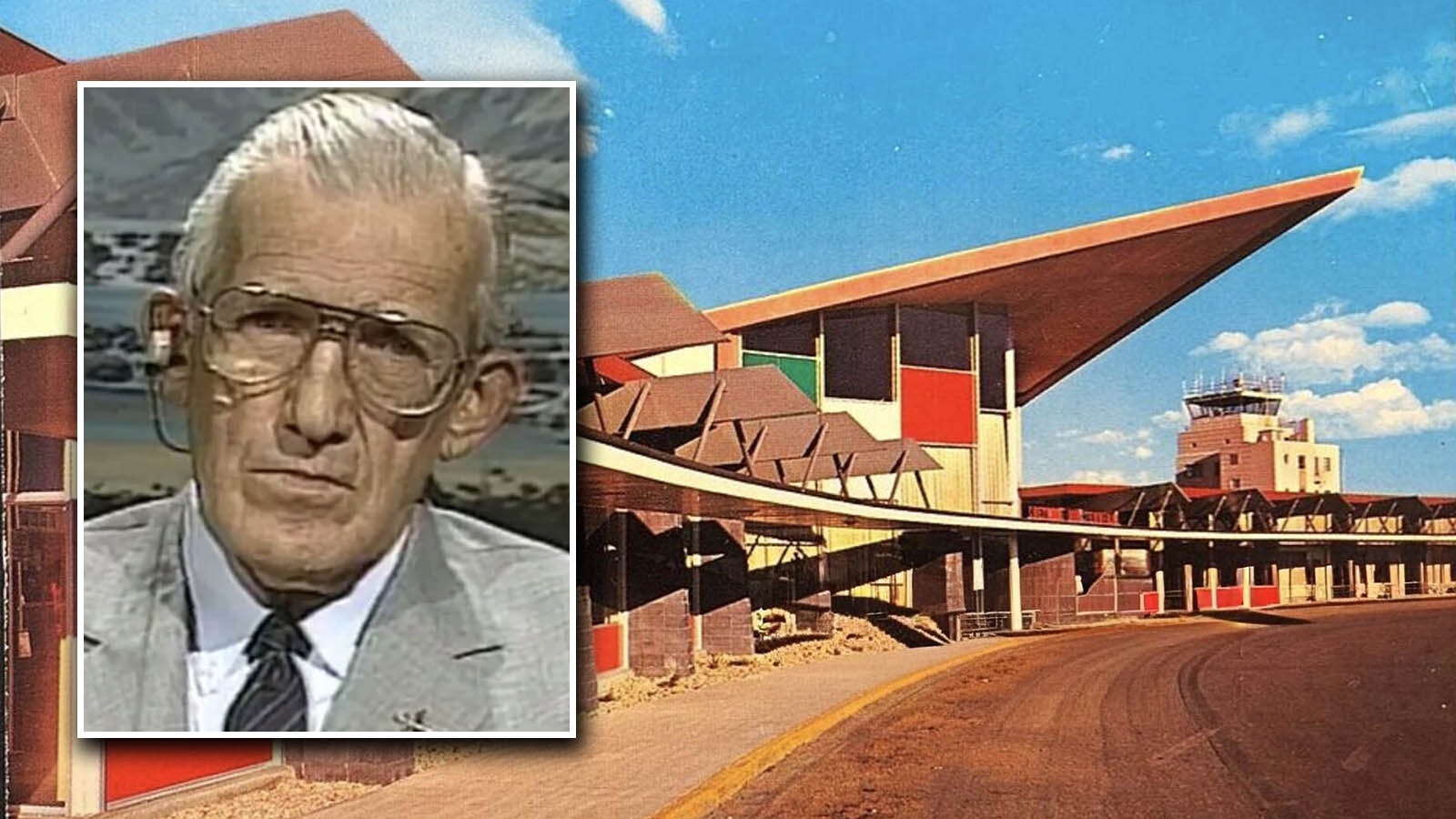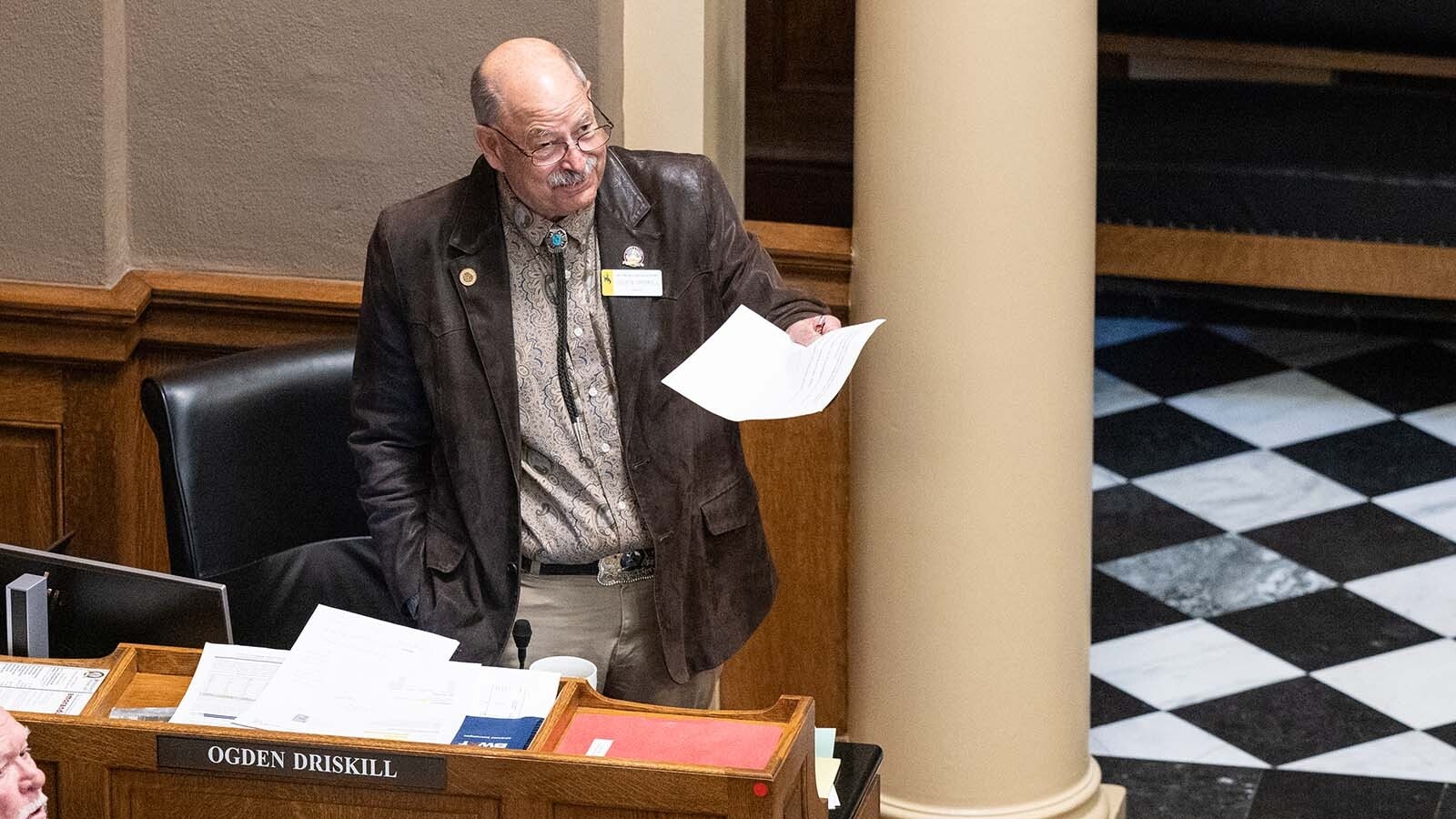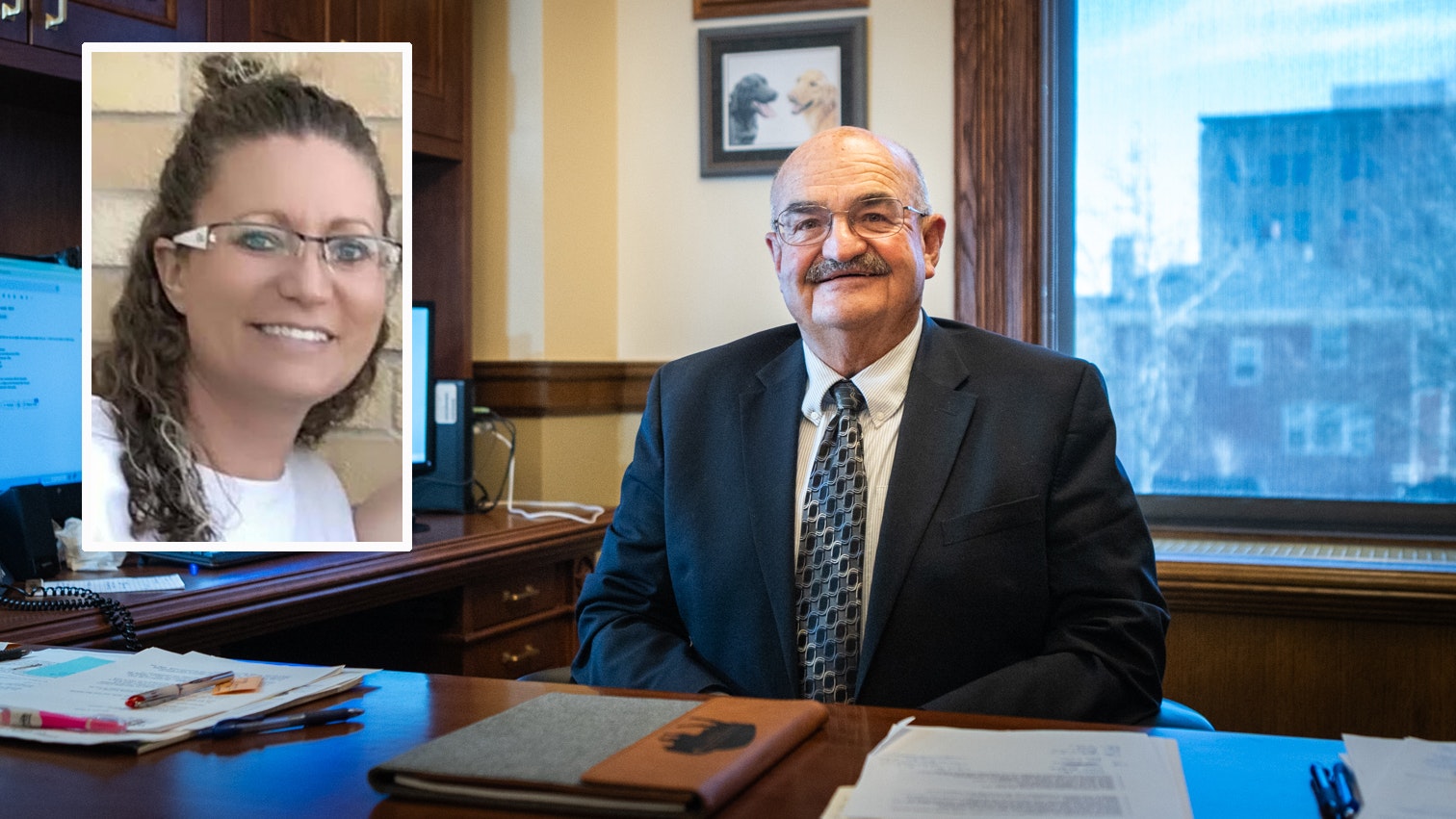Librarians and educators on Monday opposed a wide-ranging proposed bill that seeks to toughen Wyoming’s crimes against exposing minors to obscenity, and to remove protections that keep librarians and teachers from being charged with the crime.
Some library and school board members, conversely, voiced support for the bill.
It's a new version of a recurring legislation, back with tougher language than earlier versions that didn't survive.
As originally written, House Bill 194 would introduce a new definition to sexually-explicit content that is “harmful to minors” and ban people from sharing that content – including books, movies and performances – with people under the age of 18. The bill’s sponsor Rep. Ann Lucas, R-Cheyenne, offered some amendments to her bill Monday that would remove references to “nudity." This is so that Michelangelo’s David sculpture and well-meant “pictures of baby butts” on social media wouldn’t be outlawed, she said.
“Harmful to minors” would mean content depicting sexual conduct, sexual excitement or sadomasochistic abuse that appeals to a prurient interest in sex and is patently offensive. The bill as written contains a carveout for materials with serious literary, scientific, medical or artistic value for minors, but Lucas is asking the House Judiciary Committee to eliminate that carveout from the bill before advancing it to the House floor.
Another segment of the bill would repeal part of Wyoming’s obscenity exemption law.
People exposing others to obscenity in the course of bona fide school, college, university, museum or public library activities cannot be prosecuted for that, under state law currently.
Lucas’ bill seeks to remove that protection.
Speaking on HB 194’s behalf, Rep. Gary Brown, R-Cheyenne, told the committee the proposed repealing of the exemption is about protecting kids.
These are “the very things citizens on the street would be committing a crime – if they do the same things to children,” said Brown. “Just because someone is in a school setting, that doesn’t change what’s going on. What a child’s exposed to.”
Prosecutors tend to use Wyoming's current obscenity bans against people who show kids pornography.
Ben Moritz, executive director of the Wyoming Community College Commission, asked the committee to keep the exemption clause protecting colleges and universities from criminal prosecution.
Some proponents of the bill voiced favor toward that request as well.
Law enforcers and judges in the course of their duties would remain exempt from prosecution under the bill. The bill also would add exemptions for people engaged in medical or mental health care treatments.
Just as in the current but more limited statute, promoting obscenity to minors would be punishable by up to one year in jail and $6,000 in fines under HB 194.
Librarians Say Absolutely Not
Lindsey Travis, President of the Wyoming Library Association, urged the committee to vote the bill down.
No vote happened on Monday, as Committee Chair Art Washut, R-Casper, scheduled the representatives’ discussion and vote for Wednesday instead, to give time for the numerous meeting attendees to speak their minds on it Monday morning.
“Librarians already take the responsibility for not promoting obscenity very seriously,” said Travis, adding that librarians follow local policies already in place, put their by board members who are appointed by elected county commissioners.
Even the definition of obscenity varies from community to community, Travis said.
She said librarians urge parents to monitor their kids’ reading choices; including by linking their own library cards to those of their children.
Washut pushed back.
“A minor would not need a library card to peruse materials on the shelf, is that correct?” he asked. “So that would take away the ability of a parent to monitor.”
Travis conceded the point, but said librarians also encourage parents to visit the library with their kids.
One Of Many Local Storms
Anita Marple, Fremont County Library System Director, also told the committee to vote no.
This issue exploded in her community in 2024, she noted.
A community member challenged two controversial books as obscene. The Fremont County Library Board voted 3-2 in March to keep both books in the local library.
The county’s schools also grappled with outrage over sexually-explicit books, prompting Fremont County School District No. 1 to craft new policies.
The issue isn’t new. Book content controversies have erupted in Natrona, Laramie, Campbell and Park counties, and other communities throughout Wyoming.
During her seven years in library leadership, only four people have submitted requests for library material reconsideration, Marple said. But this bill would let people bypass those established processes and seek criminal prosecution against her or others – because of a qualm with the materials or even because of a grudge against her, she argued.
“This bill seeks to define the community standards for the people of Wyoming,” said Marple, who said the bill’s sponsors didn’t seek educator and librarian input when crafting its definitions.
“I object to the creation of lawfare, to harass and intimidate me into making choices that will most assuredly trample on the free speech and equal protection rights of people in my community,” she said.
Doesn't Work, Some Board Members Say
Board members from the Natrona County School Board and Campbell County Library Board – who spoke as individuals not board representatives – said the local policies in place aren’t working to protect kids.
By policy, some boards route their book or materials challenges through “reconsideration committees” containing school staffers, rather than through the elected or locally-appointed board delegates. Some have struggled with opt-in or opt-out lists of sexually-graphic books which may not be comprehensive, Jenifer Hopkins, member of Natrona County School Board No. 1, told the committee.
Hopkins said she supports the bill, but, as a local breastfeeding advocate, she asked for an exemption for breastfeeding literature.
'Parents Have No Idea'
Chelsie Collier, member of the Campbell County Library Board, discussed her lengthy struggle against explicit books. And she flashed printouts from some of the books in question.
“Parents have no clue what materials their children will have access to,” she said. “(They) contain sexually explicit information, directed at minors, that cause you to be filled with feelings no minor should ever feel.”
The graphic books controversy grew so severe in Campbell County in recent years, a library director who was fired is now suing a local family for defamation, for saying she was peddling pornography.
Patricia McCoy, a Laramie County mom, said school staffers don’t always respect parents’ wishes. She said her local school exposed her daughter to gender-transition materials against her wishes in 2018, after which the girl became depressed and attempted suicide.
“When I sought their help, they treated me as an enemy,” McCoy said of school staffers. She said her daughter is doing better now, “through God’s grace and intensive support.”
Some Unintended Consequences Though
The bill needs some work, Lucas conceded during her own testimony and presentation of amendments.
Rep. Daniel Singh, R-Cheyenne, told a humorous anecdote about going through his high school yearbook and finding explicit “doodles.”
He wondered aloud if the state could be put in the position of prosecuting minors for their sexualized exchanges.
Lucas’ answer was speculation: “I don’t think so,” she said. “I don’t see that as a crime.”
Ken Chestek, D-Laramie, voiced concern with the repeal clause removing legal protections for librarians, museum curators, teachers and professors.
Singh also asked about that, wondering if historical displays of nudity, such as in the Washington, D.C., holocaust museum, would be criminalized under the bill.
Lucas said no, since those aren’t “prurient or sexual displays” – but that’s why she wants to amend references to “nudity” out of her own bill.
Rep. Laurie Bratten, R-Sheridan, asked Lucas if she’d be willing to restore protections for museum staffers.
Lucas resisted that idea, saying parents should consent for their child to see sexualized content in museums. She had earlier proposed language exempting parents from prosecution under the bill, for consenting to show their children things falling under the “harmful material” definition.
Clair McFarland can be reached at clair@cowboystatedaily.com.









